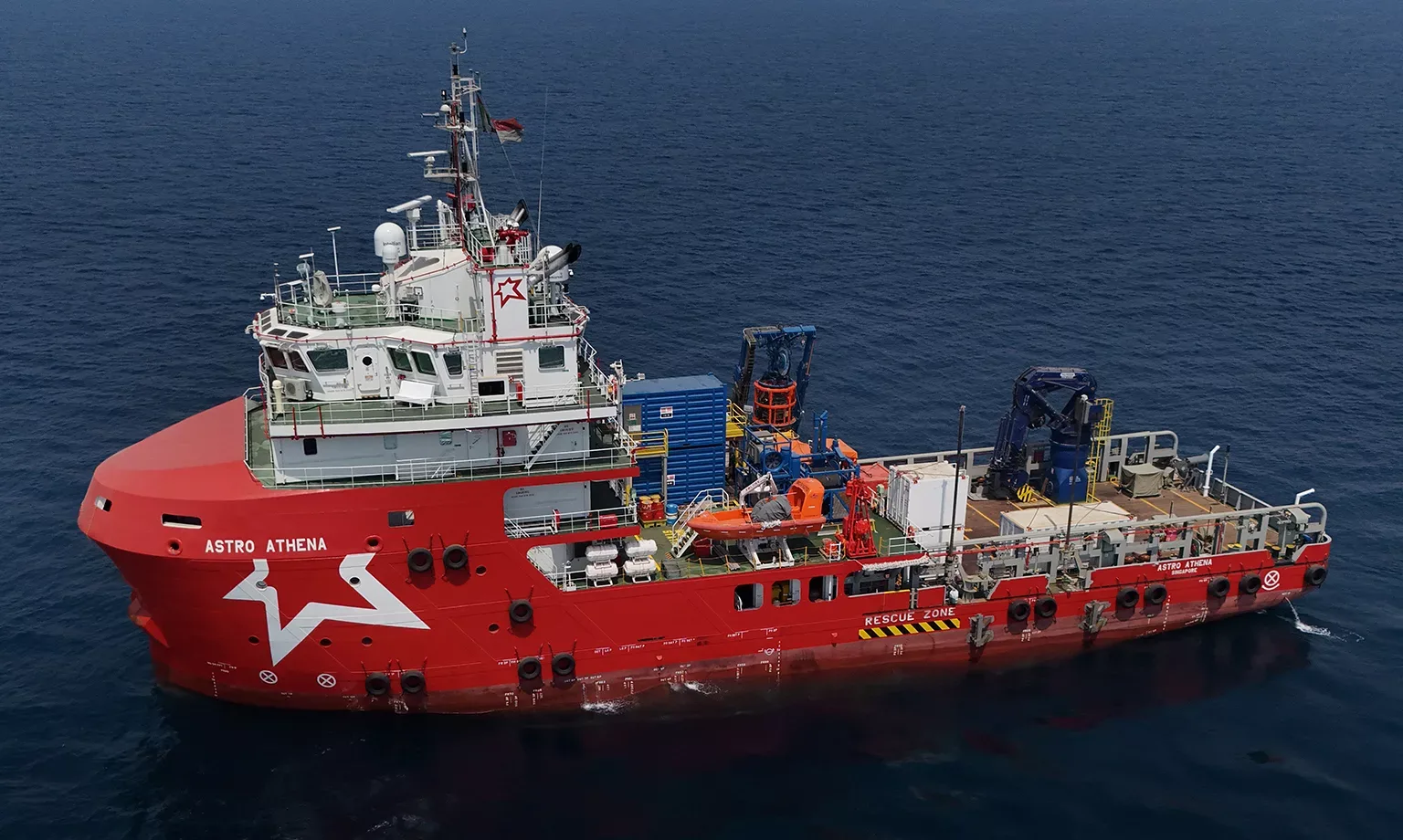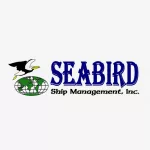Owning and operating a range of assets to support and serve the marine offshore industry, Astro Offshore’s vessels successfully ride the waves across key markets. We dive into its operations with Managing Director, Mark Humphreys.
STELLAR SEAFARING SERVICES
For millennia, humans have relied on the seas for transportation and commerce. However, it wasn’t until 1891 that the world witnessed the emergence of the first submerged oil wells, marking the beginning of the offshore industry. This event transformed the way humanity interacted with the vast resources lying beneath the ocean’s surface.
Today, Astro Offshore (Astro) services the oil and gas and engineering, procurement, and construction (EPC) sectors. Established in 2009, with its head office in Singapore, the company holds multiple international branches in Dubai, Qatar, and Abu Dhabi and is set to open a branch in Saudi Arabia soon.
Furthermore, Astro employs approximately 500 seafarers and supports around 50 shore-based staff. Its geographical project footprint covers Southeast Asia, the Middle East, the Indian subcontinent, and East Africa.
“One of the key areas and markets we thrive in is the transportation business, working extremely closely with several EPC contractors to provide turnkey solutions for projects locally and internationally, transporting jackets, topsides, platforms, pipelines, and a plethora of offshore structures and materials,” introduces Mark Humphreys, Managing Director of Astro.
“We offer a variety of offshore tonnage, which we have bought and managed over the last 10 years. Currently, Astro owns over 25 offshore vessels, offshore ballastable and self-ballasting barges, as well as a specialised vessel unit division consisting of multi-purpose supply vessels (MPSVs) and deep-submergence vehicles (DSVs),” he continues.
Astro’s main strength is its ownership and management of several offshore assets, which allow the company to provide an honest and reliable service and position itself as a Tier 1 operator.
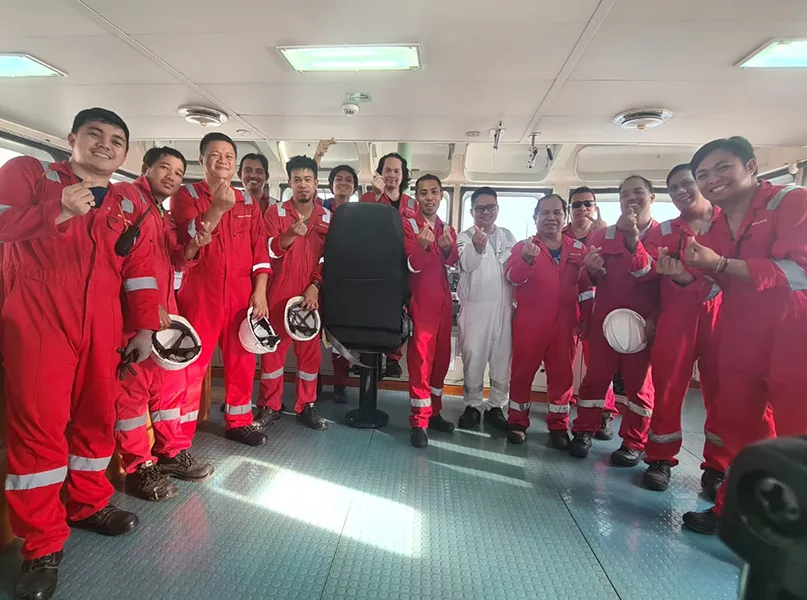
BEST IN CLASS
Astro’s ethos is to provide an outstanding service offering as the company prides itself on honesty, performance, and transparency, thus differentiating it from the competition.
“At all levels, these principles are our fundamental success points; they are the very minimum our international oil companies (IOCs) and blue-chip EPC contractors demand,” insights Humphreys.
These values underpin Astro’s success, which subsequently fuels its ambition to expand in accordance with its customers’ requirements.
“Growth comes with extra demands, however, our key company strategy is to remain the best in class. All levels within the Astro group drive this vision and our performance, and we believe even more is achievable,” he prides.
Presently, Astro owns and operates over 25 offshore vessels and barges, including anchor-handling supply tugs, MPSVs, dive support vessels, and conventional work boats.
“Our strategy from the outset was to own and operate first-rate vessels and provide services at that same level.”
Astro’s goals have been enabled by the company’s zero to limited debt, which has allowed it to be highly dynamic, agile, and forward-thinking since its inception.
Having consistently expanded its fleet year-on-year, adding three to four vessels per annum, Astro will continue to pursue suitable opportunities, but only if the financial aspect adds up. This year alone, the business plans on increasing its fleet by four to six assets by Q4.
“Astro recently acquired two new assets – our dynamic positioning vessels and MPSVs – which allow us to enter a new client base and support the work of existing customers. This includes subsea activities, such as cable laying, the running of remotely operated vehicles (ROVs), and subsea survey work.
“Our trusted clients have contracted both vessels, the Astro Aquila and Astro Athena, in the long term,” Humphreys reveals.

“Our strategy from the outset was to own and operate first-rate vessels and provide services at that same level”
Mark Humphreys, Managing Director, Astro Offshore
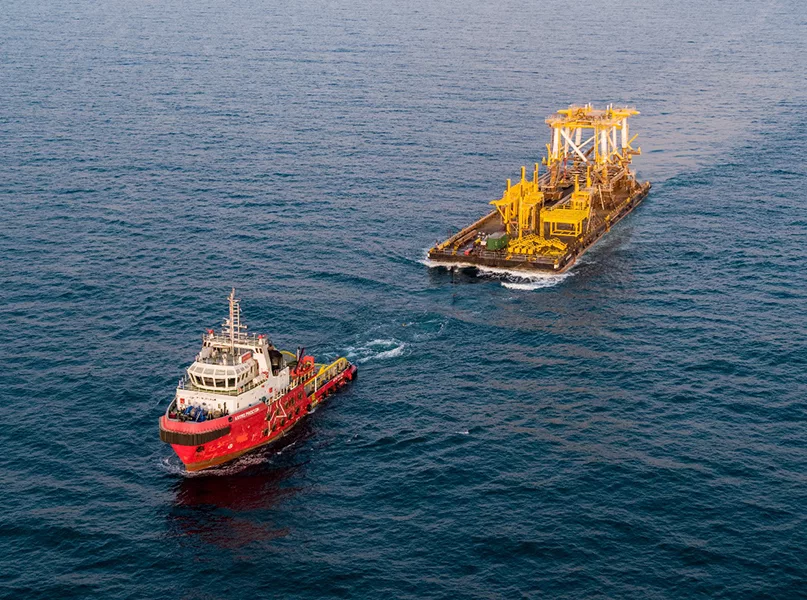
SIGNIFICANT SUPPLIER STRIDES
The Astro Athena vessel, which was mobilised from China and immediately contracted with a key client, is a particularly vital project for the company.
“We have significantly modified our collaboration with the charterers, who use Astro as a long-term partner for their subsea operations. These alterations and mobilisations have taken over two months with a significant capital expenditure (CapEx) investment in the project,” Humphreys reveals.
The vessel will support the client throughout the Middle East and North Africa (MENA) region and any other potential international projects.
“It is our belief that this showcases and demonstrates Astro’s relationships with its customers and conviction in delivery. It is an exciting journey, and we believe we will garner many opportunities together going forward.”
Maintaining strong relationships is crucial for Astro as it relies upon various suppliers, which could be locally or internationally based, depending on requirements.
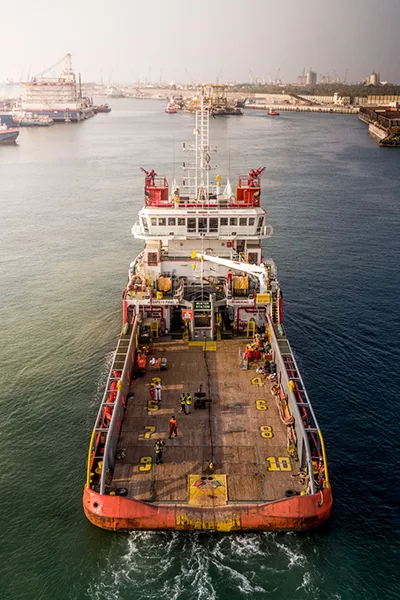
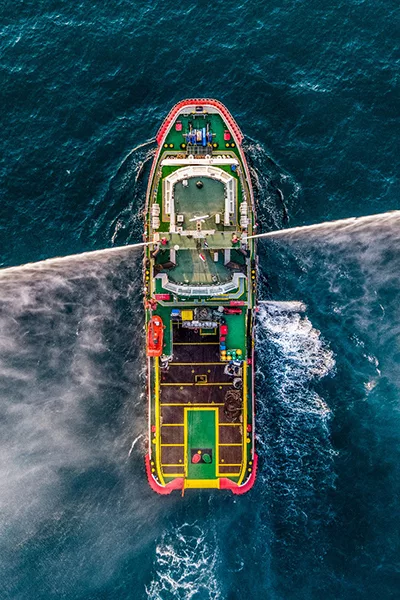
“If asked, all ship owners would undoubtedly prefer to source services and parts locally. However, this is not always achievable or practical.
“As a ship owner that operates almost 30 vessels within the MENA region and internationally, the key driver to our supplier evaluation is post-sale service, which is a paramount stage of the process,” Humphreys expresses.
As with all shipping markets, the offshore industry is cyclical, and it appears to be heading in the right direction according to the critical fundamentals of supply and demand. While Astro is also advancing in this robust space, the business is aware of its previous challenges that will shape its operations going forward.
SHIPPING MARKET FORECAST
As industry demand has increased, so has the size and scale of the projects awarded by IOCs and governments, leading to a positive outlook for offshore ship owners.
“Currently, there is a significant shortage of new construction projects and available slots at shipyards to build offshore vessels to meet the existing demand. This is in stark contrast to the buoyant market experienced by the industry from 2008 to 2012 when shipyards were at full capacity and numerous shipowners were constructing an excessive amount of cargo volume.
“At Astro, we believe that the fundamentals of the current market are much stronger than in previous years. This is because new construction activity is not at the same level as we have seen during previous positive market conditions,” Humphreys explains.
Additionally, international banks are still hesitant to finance new projects in the offshore sector, particularly those associated with oil and gas, based on their experiences over the past decade.
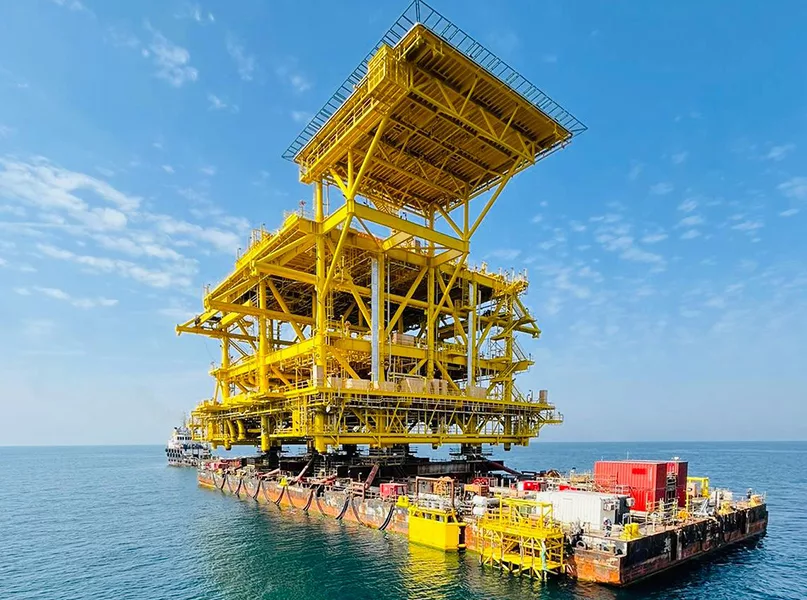
Moreover, shipyards provide stricter penalty payment terms than in previous market conditions; thus, the entry barrier for new builds is becoming increasingly capital-intensive.
Given the lack of financial support, increased investment requirements, and ongoing recovery from a prolonged economic downturn, Astro believes that the market will maintain its current tonnage and not hastily rush into new developments as seen in the past.
“One must understand that several international shipowners defaulted on payments to banks and lenders only a few years ago. Banks foreclosed on several assets, and the daily rates were at an all-time low.
“Our belief and hope is that international shipowning trade will continue correcting itself and enable shipowners to experience a stable market for several years before new builds come on stream,” Humphreys concludes.
Astro, with its optimistic vision of the future and wealth of valuable experience, is dedicated to expanding while providing crucial support for offshore projects.



